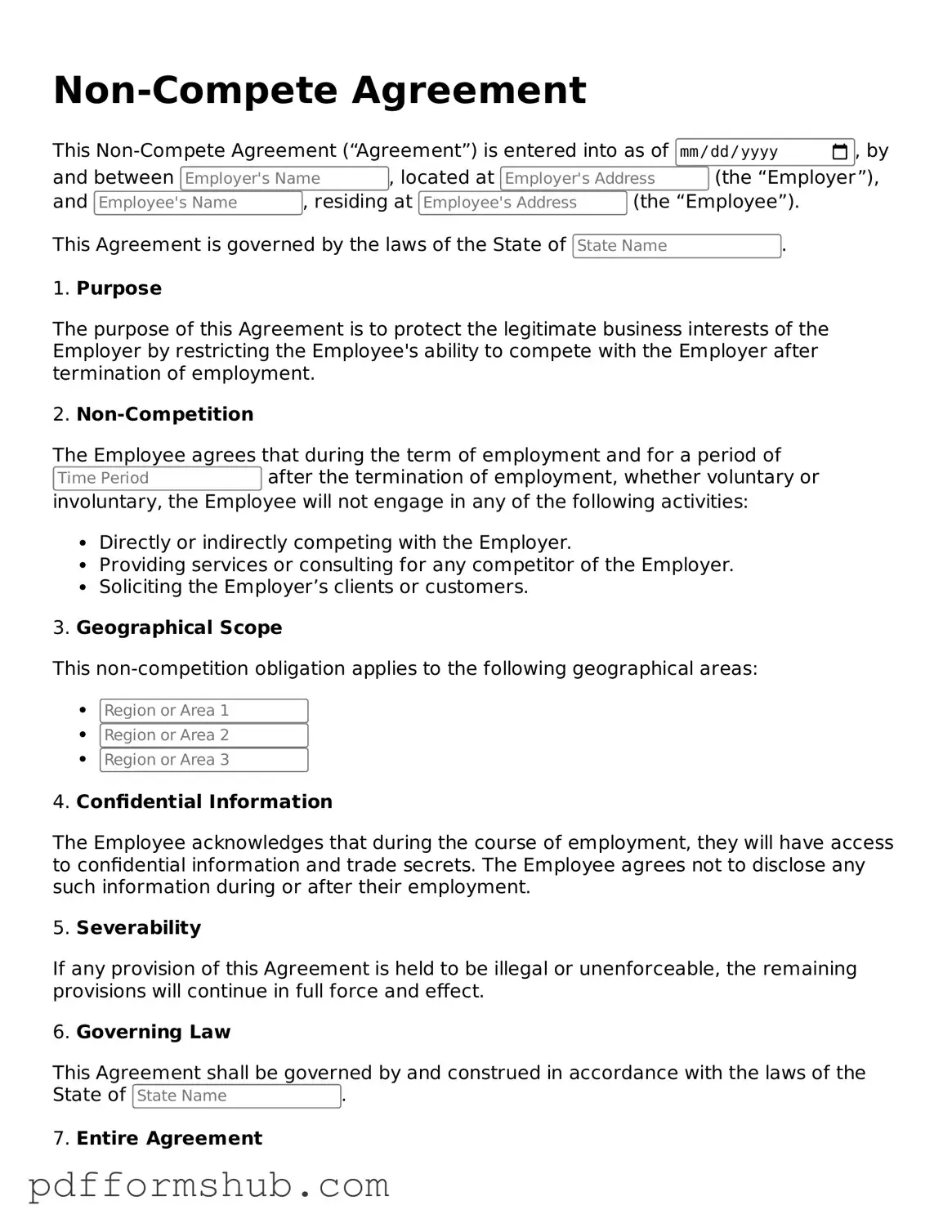Valid Non-compete Agreement Form
A Non-compete Agreement is a legal contract between an employer and an employee that restricts the employee from engaging in competitive activities for a specified period after leaving the company. This form is designed to protect a business's confidential information and maintain its competitive edge. To learn more about how to fill out this important document, click the button below.
Customize Form

Valid Non-compete Agreement Form
Customize Form

Customize Form
or
Free PDF Form
Short deadline? Complete this form now
Complete Non-compete Agreement online without printing hassles.